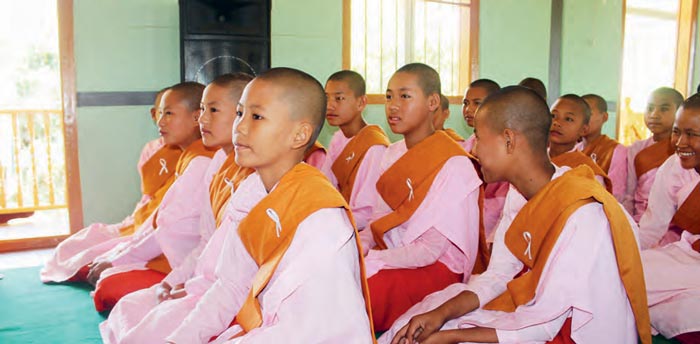
This article is from our Global Report on Results 2011-2014.

WHY: The Breaking the Silence (BtS) programme was initiated as a response to a situation of high prevalence of GBV and gender discrimination being a great barrier for girls and women to fulfil their right to a life free from violence. Common attributes to enable this situation include: a culture of silence, male domination, power abuse, lack of awareness of rights, lack of services and legal redress, as well as fear of violence and shame. Human trafficking and systematic sexual violations, such as rape, are current practices in the conflict areas. Impunity of perpetrators has been the rule and legislation almost inexistent.
WHAT: The programme targeted FBOs, teachers and students at faith-based colleges and schools. NCA’s role was to build the capacity of partners and bring together CSOs, legal networks and FBOs. Participatory methods and gender training were used to build awareness on GBV, document and provide legal aid to survivors and advocate for new legislation against GBV. Almost 15,000 rights-holders (6,000 women) benefitted directly from the programme.
RESULTS: A recent evaluation report25 concludes that the programme contributed to important impacts in terms of changes in attitudes and practices, and ultimately in breaking the silence on GBV. Reduced levels of violence against women and girls are reported in the target areas. The number of GBV cases that are brought to court has increased.
A considerable contribution towards these results was the development of a curriculum on GBV and gender equality and its introduction into the two main faith-based educational institutions.
New participatory teaching methods invited students to reflect critically on the social and traditional norms upholding gender-based discrimination and resulted in a considerable reduction of harassment against girls in schools, a change in teachers’ behaviour, and a change in attitude among girls, who now are more confident and outspoken.
Through the work in Northern Shan state to prevent human trafficking, community-based groups with support from YMCA reported cases to the anti-trafficking unit, rescued 26 (3 men, 23 women) and prevented 91 (35 men, 56 women) from being trafficked to China.
The programme established a positive collaboration with the Department of Social Welfare and other Government institutions. NCA and partners contributed with baselines, research and comments to drafts of the official CEDAW report (and to a shadow CEDAW report), the National Strategic Plan for Advancement of Women 2013-2021 and the Anti-Violence against Women Law. This was the first time ever the Government cooperated with women’s organisations around the adoption of a law.
NCA and partners have contributed to bringing the issue of GBV to the forefront in Myanmar. Bringing people of different faiths and ethnic groups together was in itself a major achievement after years of isolation and distrust. Together, Buddhist and Christian FBOs contributed to identifying causes and consequences of GBV in their communities and applied their new knowledge and attitudes to unpack a culture of silence on GBV.